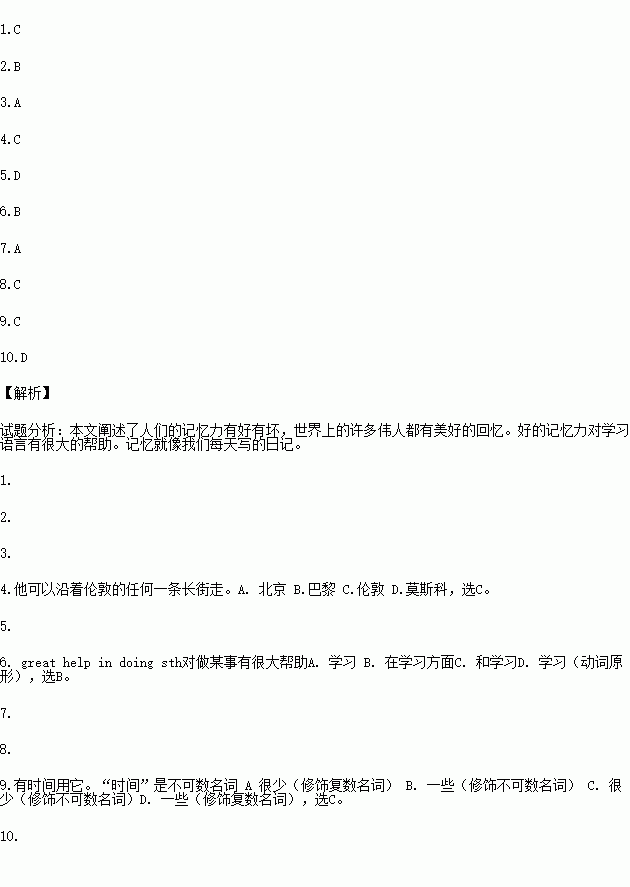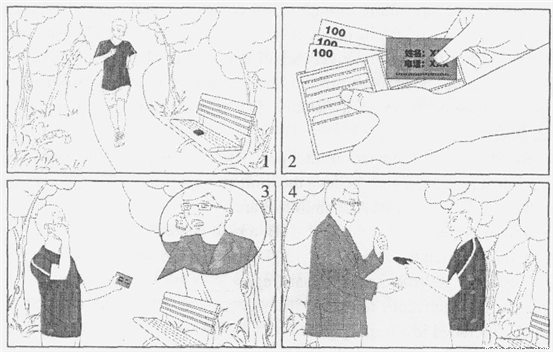题目内容
Some people have good memories and can learn quite long poems by heart.
people have poor memories and cannot remember things they have said that over and over again.
The famous English writer, Charles Dickens, said he could walk down any long street in and then tell you the names of all the shops he had . Many great men of the world have wonderful memories.
A good memory is a great help a language. Everybody learns own language by remembering the things he heard when he was a small child. Some children like those who live in foreign countries with their parents, seem to learn two languages as as they do one. In school it is not so easy for pupils to learn a second language because they have very __ __ time for it.
Memory a diary that we keep every day.
1.A. easy B. easier C. easily D. hardly
2.A. Some B. Other C. The others D. Others
3.A. until B. after C. when D. but
4.A. Beijing B. Paris C. London D. Moscow
5.A. went B. walked C. came D. passed
6.A. learning B. in learning C. with learn D. learn
7.A. his B. their C. your D. our
8.A. good B. better C. well D. more easily
9.A. few B. a little C. little D. a few
10.A. looks like B. does like C. likes D. is like


 59, Elizabeth Blackwell was officially recognized as a doctor in Great Britain — the first woman to be honored. She was the inspiration of Elizabeth Garrett, who began the women’s medical movement in England. Florence Nightingale, founder of the practice of nursing by women, was another of her friends.
59, Elizabeth Blackwell was officially recognized as a doctor in Great Britain — the first woman to be honored. She was the inspiration of Elizabeth Garrett, who began the women’s medical movement in England. Florence Nightingale, founder of the practice of nursing by women, was another of her friends.